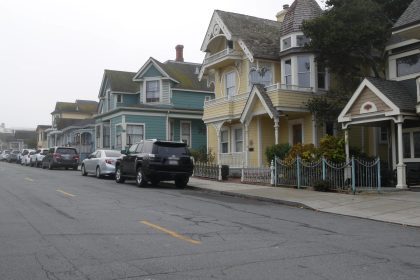In a groundbreaking move, Benin has taken significant steps to address its historical involvement in the transatlantic slave trade by offering citizenship to descendants of those enslaved. This initiative, spearheaded by President Patrice Talon, was formalized in a law passed in September 2024, marking a pivotal moment in the nation’s reckoning with its past.
A unique opportunity for descendants
Benin stands out as one of the few African nations actively working to provide citizenship to descendants of enslaved individuals. This initiative is reminiscent of Ghana’s invitation to Black Americans to return to their ancestral roots in 2019, coinciding with the 400th anniversary of the first enslaved Africans arriving in North America. Such efforts highlight a growing recognition of the need for reparative justice and cultural reconnection.
Eligibility criteria for citizenship
The citizenship law in Benin is designed to be inclusive. It allows individuals over the age of 18, who do not already hold African citizenship, to apply for citizenship if they can prove their lineage to someone who was deported during the slave trade from any part of Sub-Saharan Africa. This provision opens the door for many to reclaim their heritage and establish a connection with their ancestral land.
Historical context: The bight of Benin
Benin’s significance in the slave trade cannot be overstated. The country was a major port of departure for enslaved Africans, with an estimated 1.5 million individuals forcibly taken from the Bight of Benin, which includes present-day Benin, Togo and parts of Nigeria. This historical context adds profound meaning to the citizenship law, as it serves as a form of acknowledgment and reconciliation for the atrocities committed in the past.
Memorial sites and cultural connections
Ouidah, a coastal town in Benin, is a poignant reminder of this dark chapter in history. It is home to numerous memorial sites, including the “Door of No Return” and the “Tree of Forgetfulness,” which commemorate the lives lost and the suffering endured during the slave trade. These sites attract visitors from around the world, including descendants seeking to connect with their roots.
Application process and requirements
To apply for citizenship, individuals must provide various forms of documentation, including DNA tests, authenticated testimonies and family records. One notable resource is the website “Anchoukaj,” which translates to “Affiliation” in Antillean Creole. This platform has been utilized by individuals who expressed a deep sense of familiarity upon arriving in Benin, feeling a connection to their ancestors through the people and their culture.
Personal stories of connection
Many individuals, including prominent figures like actor Samuel L. Jackson and his wife, LaTanya Richardson, have shared their experiences of discovering their heritage in Benin. In the documentary series Enslaved, Jackson’s journey highlighted the cultural ties that persist despite the centuries of separation. Richardson noted how Jackson’s affinity for the sea resonated with the coastal traditions of the Benga tribe, illustrating the enduring links between descendants and their ancestral cultures.
A step toward healing
Benin’s citizenship law represents a significant step towards healing and reconciliation for descendants of the enslaved. By acknowledging its past and providing a pathway for connection, Benin is not only honoring the memory of those lost but also fostering a sense of belonging for those seeking to reclaim their heritage. As more individuals embark on this journey, the hope for a deeper understanding of shared histories and cultural ties continues to grow.

















